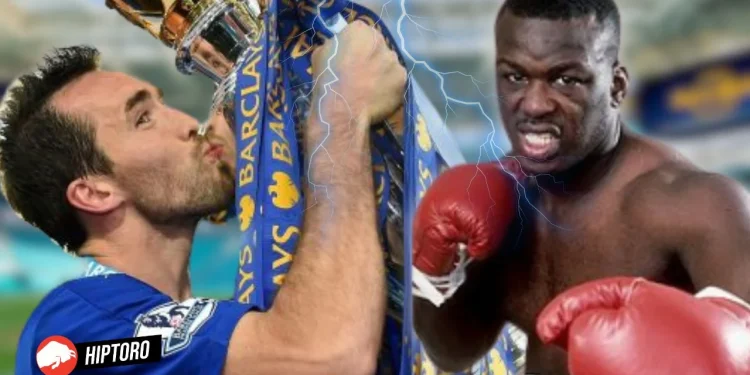The world of sports is replete with tales that stretch far beyond the boundaries of mere games and competitions. These narratives often capture the quintessential human spirit of determination, resilience, and the relentless pursuit of triumph in the face of overwhelming odds.
Among these, underdog victories hold a special place, serving not just as sources of inspiration but also as compelling evidence of the unpredictable nature of sports. In this article, we explore ten of the most iconic underdog victories in sports history, delving into each event’s backdrop, the odds stacked against the victors, and the lasting impact these moments have had on sports and wider society.
These stories span various sports, each with its unique set of challenges and historical contexts. From ice hockey to soccer, basketball to rugby, these underdog tales share a common thread: they remind us that on any given day, the seemingly impossible can be achieved. Such victories not only redefine athletes and teams but also resonate deeply with fans and observers, offering timeless lessons in perseverance and courage.
Here are the Top 10 Underdog Victories in Sports History
1. The Miracle on Ice (1980)
The 1980 Winter Olympics in Lake Placid, New York, provided the stage for perhaps the most dramatic underdog story in the history of sports. The U.S. men’s ice hockey team, composed mainly of amateur and collegiate players, faced the Soviet Union in the medal round. The Soviets were not just the reigning gold medalists but were also considered the finest team in the world, having dominated international ice hockey for nearly two decades.

Pre-Game Expectations
The expectations before the game were bleak for the U.S. team. The Soviet Union had already demolished the U.S. team 10-3 in an exhibition match just weeks before the Olympics. The Soviet team was full of seasoned veterans, well-prepared and seemingly unbeatable. In contrast, the U.S. team, led by coach Herb Brooks, was young, less experienced, and had only been together for a few months. The odds were heavily stacked against them, with bookmakers and pundits predicting an easy win for the Soviets.
The Game and Its Impact
The game itself was a tense affair, with the lead changing multiple times. The U.S. team showed remarkable resilience and managed to keep pace with the Soviet powerhouse. The turning point came in the final period when Mike Eruzione scored the winning goal, giving the U.S. a 4-3 lead. The Americans held on, and the victory was dubbed “The Miracle on Ice” because of its improbability and the dramatic nature of the win.
This victory is more than just an Olympic upset; it became a symbol of hope and possibility during a time of Cold War tensions between the United States and the Soviet Union. It inspired a nation and is remembered not only for its athletic achievement but also for its broader cultural and political implications.
The Aftermath and Legacy
The U.S. team’s victory had a profound impact on ice hockey in the United States, sparking increased interest in the sport at all levels. The win also changed the way the world viewed American ice hockey, establishing the U.S. as a formidable force in the sport. The game itself has been the subject of numerous documentaries and films, most notably the 2004 movie “Miracle,” which portrays the events leading up to and including the game.
The Miracle on Ice remains a defining moment in Olympic history and a pinnacle of underdog victories in sports. Its legacy is not just in the realm of sports but also in the wider narrative of American culture and the Cold War era. The story continues to inspire athletes and non-athletes alike, symbolizing the power of belief and the potential for greatness against all odds.
2. The 1999 UEFA Champions League Final: Manchester United’s Dramatic Comeback
The 1999 UEFA Champions League Final remains one of the most remarkable moments in the history of football, encapsulating the sheer unpredictability and excitement that the sport can offer. Played at the Camp Nou in Barcelona, the final saw Manchester United, an English club, come up against Bayern Munich, a powerhouse of German football. What ensued was a display of resilience and tenacity that has since become a legendary chapter in Manchester United’s storied history.
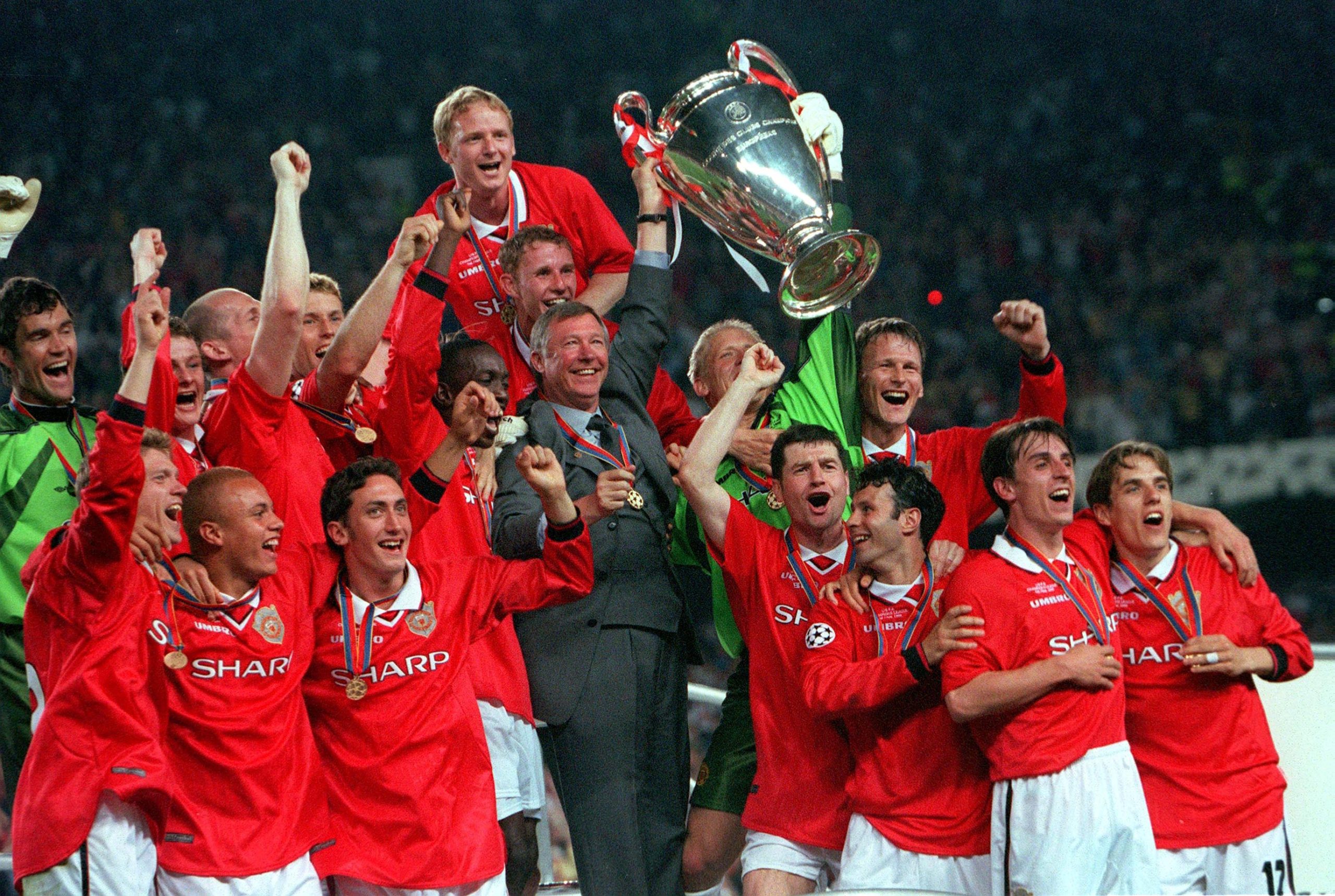
Setting the Stage
Manchester United arrived at the final looking to complete an unprecedented treble of the Premier League, FA Cup, and Champions League in the same season—a feat never before accomplished by an English club.
Bayern Munich, on the other hand, was eager to assert its dominance in European football with a strong squad that had performed consistently well throughout the tournament. Despite their successful domestic campaign, Manchester United was not the outright favorite, as they faced the absence of key players due to suspension, adding a layer of difficulty to their challenge.
The Match Unfolds
The game began unfavorably for Manchester United. Bayern Munich took an early lead with a goal from Mario Basler in the sixth minute, and despite numerous attempts, Manchester United struggled to equalize. As the match wore on, the situation looked increasingly grim for the English side. The German team maintained control, hitting the woodwork twice and seemingly on the verge of clinching the title as the match entered stoppage time with Bayern still leading 1-0.
The Turning Point
What happened in the dying minutes of the game is nothing short of miraculous. In the 91st minute, Manchester United won a corner which was taken by David Beckham. His cross found the head of Teddy Sheringham, who managed to push the ball into the net for an equalizer. The Bayern players were visibly shocked, but the drama was not over. Just two minutes later, another corner by Beckham led to Ole Gunnar Solskjær scoring the winning goal, completing an astounding turnaround and securing a historic treble for Manchester United.
Impact and Legacy
The victory is celebrated not only for its dramatic nature but also for what it represented in terms of tenacity and never giving up until the final whistle. It reinforced the idea that in football, anything is possible. The match is often cited in motivational speeches and is a case study of persistence and belief, embodying the spirit of an underdog triumphing against the odds.
This win also elevated the stature of Manchester United on the global stage and cemented Sir Alex Ferguson’s reputation as one of the greatest football managers of all time. It remains a pivotal moment in Champions League history, often referred to by fans and analysts when discussing the greatest games in the competition.
3. Leicester City’s 2016 Premier League Victory: A Fairy Tale in Football
Leicester City’s triumph in the 2015-2016 Premier League season is perhaps one of the greatest fairy tales in sports history. Before the season began, Leicester, a small club with limited financial resources, was considered one of the favorites for relegation. Their odds of winning the league were 5000-1, a number that vividly encapsulates the scale of their underdog status.

The Unlikely Contenders
Leicester City had narrowly avoided relegation in the previous season, and their prospects of even remaining in the top flight were slim. The appointment of Claudio Ranieri as manager was met with skepticism, given his mixed track record at previous clubs. However, what unfolded over the next nine months was a story that captured the imaginations of football fans and sports enthusiasts worldwide.
The Season of Dreams
Leicester City displayed remarkable consistency, defying expectations game after game. With a squad that lacked the star names of their wealthier competitors, Leicester relied on a strong team ethic, a well-organized defense, and the explosive talent of players like Jamie Vardy and Riyad Mahrez. Each victory added more believers to their cause, and as the season progressed, what seemed like a fluke turned into a genuine title challenge.
Sealing the Deal
The defining moment came when Tottenham Hotspur, Leicester’s closest rivals for the title, drew 2-2 with Chelsea, ensuring that Leicester City would be crowned Premier League champions. The achievement was monumental, considering the financial disparities in the league and the dominance of teams like Manchester United, Chelsea, and Manchester City in previous years.
Lasting Impact
Leicester City’s victory has had a lasting impact on the Premier League and football. It demonstrated that success is not solely dependent on financial might but can also be achieved through teamwork, strategy, and heart. It has inspired countless smaller teams to dream bigger and has added a layer of unpredictability to the sport.
The story of Leicester City in 2016 is a modern-day sports fairy tale that continues to inspire and resonate with fans worldwide. It is a testament to the belief that sometimes, the impossible can become possible.
4. Greece’s 2004 European Championship Win: Defying the Footballing Odds
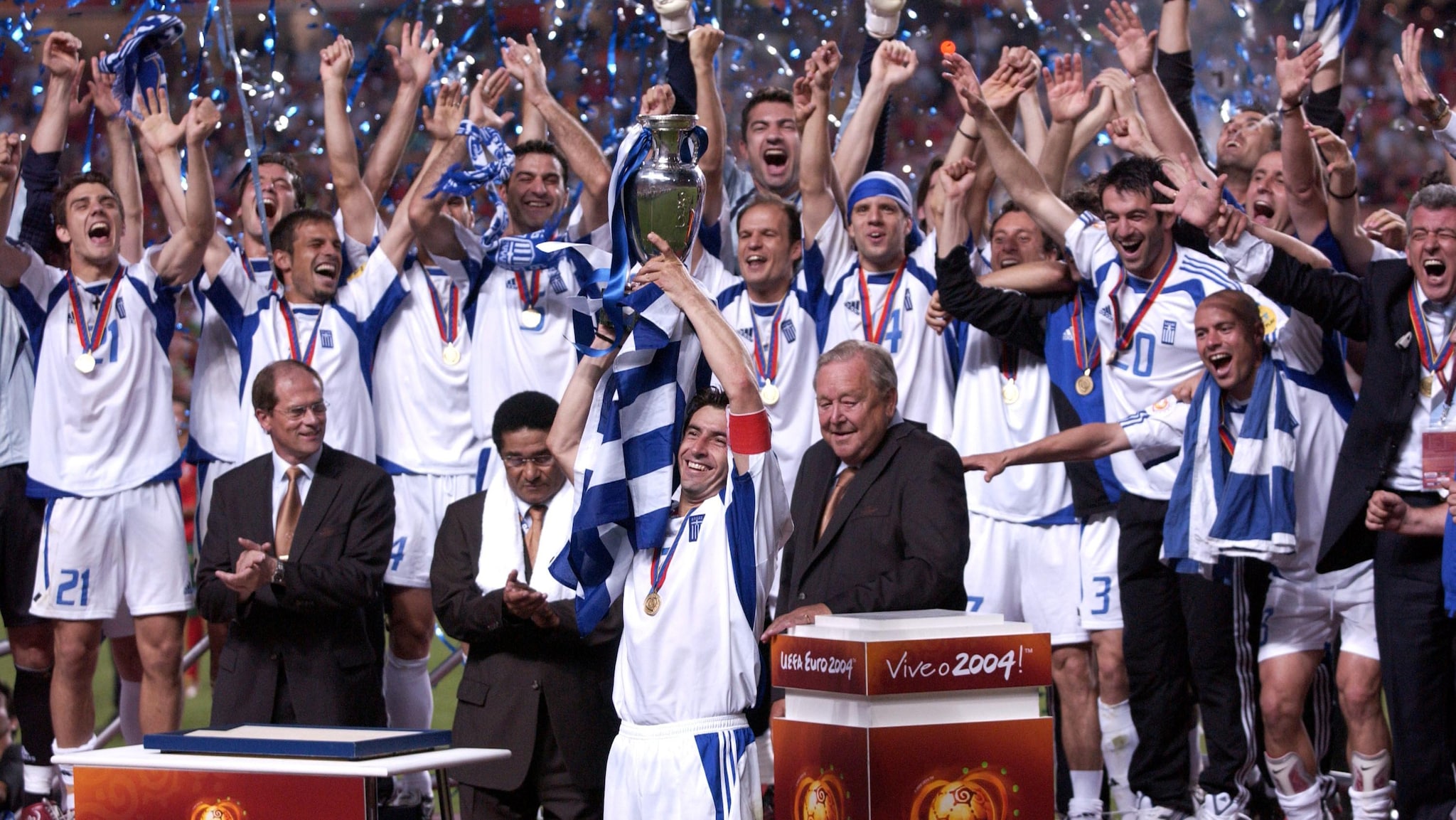
In the summer of 2004, Greece accomplished one of the most stunning upsets in football history by winning the UEFA European Championship. Before the tournament, Greece’s national football team was considered a minor player on the European stage, having never won a match in a major tournament. Their odds of winning were set at 150-1, and their group included several strong teams, making their eventual victory a tale of monumental underdog success.
The Stage and Expectations
Greece was drawn into a tough group alongside host nations Portugal, Spain, and Russia, each with a richer footballing history and considered far superior. The team, coached by German manager Otto Rehhagel, was not expected to progress beyond the group stage. However, Rehhagel’s disciplined tactical approach and the cohesive spirit of the Greek squad quickly began to turn heads.
The Tournament Unfolds
Greece’s campaign started with a shocking 2-1 victory over Portugal, setting the tone for their tournament. Despite losing to Russia, they progressed to the knockout stages by a goal difference tiebreaker, thanks to a crucial draw against Spain. In the quarter-finals, Greece faced France, the defending champions, and against all odds, won 1-0. They repeated this scoreline in the semi-finals against the Czech Republic, a team many had tipped for the title.
The Final Showdown
The final was a rematch against Portugal, the tournament host and one of the pre-tournament favorites. The game was tense and closely contested, but Greece once again displayed their remarkable defensive solidity. Angelos Charisteas scored the only goal of the match, and Greece held on to complete their improbable quest for glory.
Legacy and Impact
Greece’s victory in Euro 2004 is frequently cited as one of the greatest surprises in sports history. It challenged the prevailing football ideologies of the time, proving that tactical discipline and team unity could triumph over individual star power and financial investment. The win remains a beacon of hope for smaller nations competing in international tournaments.
5. Appalachian State’s Shocking Win Over Michigan in College Football (2007)
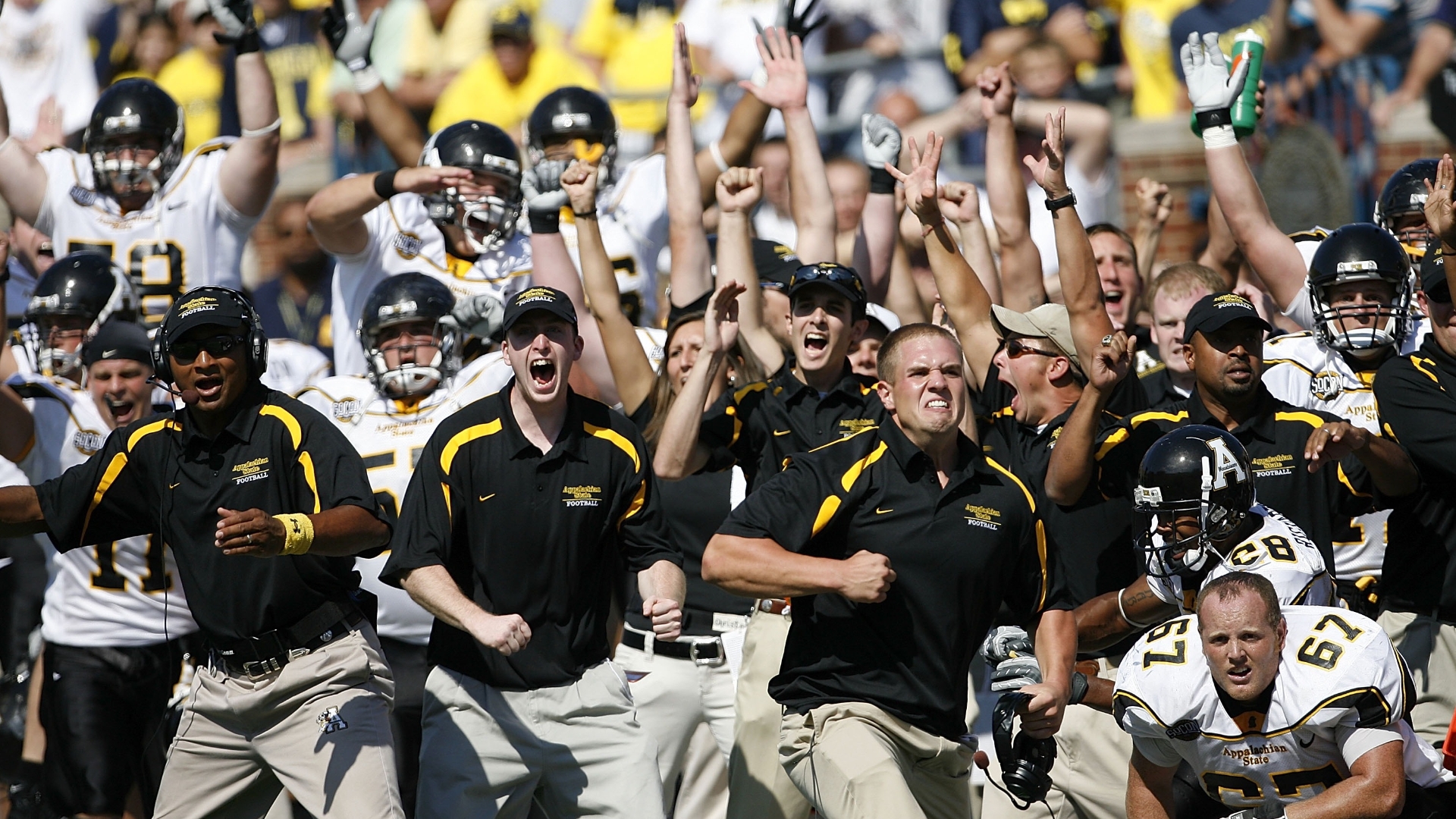
On September 1, 2007, a seemingly routine college football game turned into one of the biggest upsets in the history of the sport when Appalachian State University defeated the University of Michigan. Appalachian State was a Division I-AA team (now FCS), and Michigan was ranked fifth in the nation among Division I-A teams (now FBS), making the win an extraordinary example of an underdog triumph.
The Setup
Michigan was not only highly ranked but also played at their home stadium, “The Big House” in Ann Arbor, which is one of the largest sports stadiums in the world. The Wolverines were expected to dominate the game as part of their season opener—a routine win against a supposedly inferior team from a lower division.
The Game Itself
Appalachian State, however, did not stick to the expected script. They took an early lead and managed to maintain it through dynamic and confident play. Michigan managed to fight back, and the game saw several lead changes. In a nail-biting finish, Appalachian State blocked a Michigan field goal attempt in the final seconds, securing a 34-32 victory.
Aftermath and Significance
The victory had a profound impact on college football, highlighting the competitiveness of teams from lower divisions and the unpredictability of the sport. It was a landmark event that significantly raised the profile of Appalachian State and served as a reminder of the essence of sports: on any given day, anything can happen.
Appalachian State’s win over Michigan is celebrated in college football lore as a quintessential underdog victory, demonstrating that determination and belief can overturn even the most daunting odds.
6. Buster Douglas Defeats Mike Tyson: The Biggest Upset in Boxing History (1990)
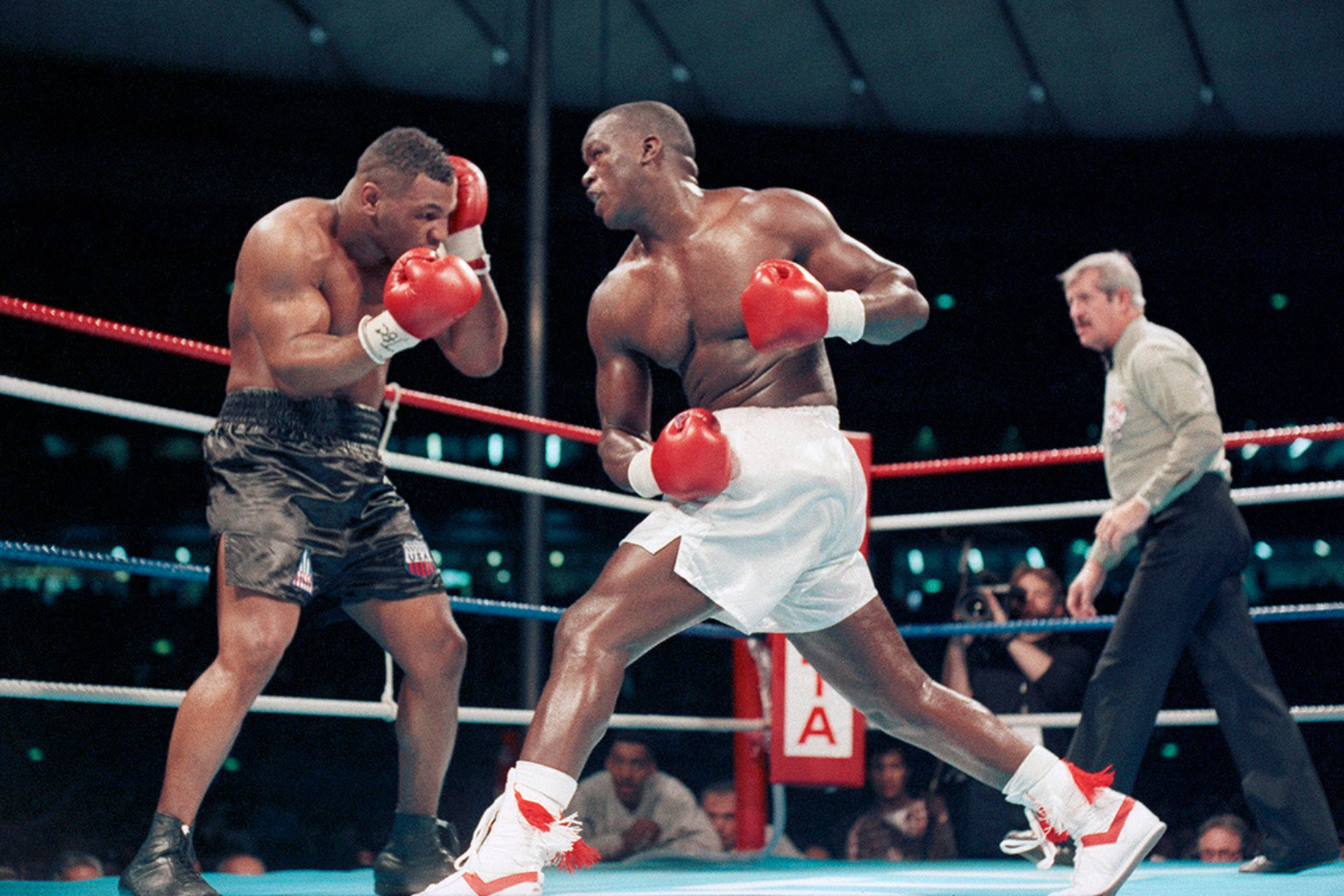
On February 11, 1990, in Tokyo, Japan, Buster Douglas achieved what is widely regarded as the greatest upset in boxing history. Mike Tyson, the then-undefeated and seemingly invincible heavyweight champion of the world, was expected to demolish Douglas in a routine title defense. Tyson was not only a fearsome fighter with an aura of invincibility but also a massive favorite, with odds at 42-1 against Douglas.
Before the Bout
Entering the fight, Douglas was relatively unknown compared to the champion. His mother had passed away just before the fight, which many thought would further diminish his chances. Tyson, meanwhile, was at the peak of his powers and fame, making Douglas’s task seem not just daunting but nearly impossible.
The Fight
From the opening bell, however, it was clear that Douglas was not just there to collect a paycheck. He used his jab effectively and managed to keep Tyson at bay, a strategy that no previous opponent had successfully implemented against Tyson. As the rounds progressed, Douglas grew in confidence, and Tyson began to look beatable for the first time in his career. In the tenth round, Douglas delivered a series of punches that knocked Tyson down for the first time in his career. Tyson struggled to find his mouthguard and get to his feet, but it was too late. The referee counted him out.
Aftermath and Legacy
Douglas’s victory sent shockwaves through the boxing world and sports in general. It was a testament to the unpredictability of boxing and the potential for anyone to triumph over adversity with the right preparation and mindset. Douglas’s win remains a symbol of hope and possibility in sports and is often referenced in discussions about the greatest upsets of all time.
7. NC State’s 1983 NCAA Basketball Championship
The 1983 NCAA Men’s Basketball Tournament was the stage for another incredible underdog story. NC State, led by coach Jim Valvano, was a low-seeded team that nobody expected to make it past the early rounds, let alone win the championship. Their miraculous run to the championship included multiple last-second wins and a strategy that focused on survival and clutch performances.

The Path to the Final
NC State faced several higher-seeded teams throughout the tournament, each time finding a way to win in the dying moments of the game. Their approach was simple: hang close enough to strike at the end, and it worked repeatedly.
The Championship Game
The final against the top-seeded Houston, known as Phi Slama Jama, one of the most dominant teams in college basketball history, was the ultimate test. The game was tight, and with the score tied in the final seconds, NC State’s Dereck Whittenburg threw a desperate half-court shot that fell short but was caught and dunked by Lorenzo Charles as time expired. This iconic moment was immortalized by Valvano running around the court in disbelief and joy.
Impact of the Victory
NC State’s win is one of the most replayed and discussed moments in sports history. It has become a symbol of hope and the epitome of the “Cinderella story” in sports, showing that with belief and a bit of luck, anything is possible.
8. The 2001 Wimbledon Men’s Singles: Goran Ivanišević’s Wild-Card Win

Goran Ivanišević’s victory at Wimbledon in 2001 is one of the most heartwarming underdog stories in tennis history. Ranked 125th in the world and entering the tournament on a wild card, Ivanišević was the lowest-ranked player and the first wild card ever to win one of tennis’s four major titles.
The Unlikely Champion
Ivanišević had been a three-time runner-up at Wimbledon in the 1990s and was thought to have missed his chance to win the prestigious tournament. His powerful serve helped him navigate through the rounds, defeating players who were much higher ranked.
The Final Match
The final against Patrick Rafter, itself a dramatic five-set thriller, was played on a rare third Monday, a “People’s Monday,” where fans could purchase tickets on the day and created a uniquely vibrant atmosphere. Ivanišević finally clinched the championship with his fourth match point in the fifth set, collapsing in joy and disbelief.
Significance of the Win
His victory is a testament to perseverance and determination, inspiring countless athletes and fans with the message that it is never too late to achieve your dreams, and sometimes, a little luck can help you on your way.
9. Japan defeat South Africa in the 2015 Rugby World Cup

Japan’s win over South Africa in the 2015 Rugby World Cup is one of the greatest upsets in the history of rugby. Known as the “Brighton Miracle,” Japan, a team with a far less distinguished rugby pedigree, defeated two-time world champion South Africa 34-32 on a last-minute try by Karne Hesketh.
Background and Expectations
Japan had not won a World Cup game since 1991, and South Africa was one of the favorites to win the tournament. The expectation was for a routine win for the Springboks, making the outcome all the more astonishing.
The Game Dynamics
The match was fiercely contested, with Japan playing an expansive, fearless brand of rugby that continually put South Africa under pressure. Instead of opting for a tie with a penalty kick in the dying moments, Japan went for the win with a try, a decision that epitomized their courageous approach throughout the game.
Impact of the Upset
This victory transformed the Japanese rugby team from perennial underdogs to serious competitors on the world stage. It also significantly boosted the popularity of rugby in Japan, leading to increased participation and interest in the sport across Asia.
10. Holly Holm Knocks Out Ronda Rousey at UFC 193

Holly Holm’s victory over Ronda Rousey at UFC 193 in 2015 is considered one of the biggest upsets in mixed martial arts history. Rousey was not only the reigning UFC Women’s Bantamweight Champion but also a dominant force in the sport, having won all her previous fights, most in the first round.
The Pre-Fight Scenario
Rousey was heavily favored to win, and many considered her invincible in the women’s division. Holm, a former professional boxer and kickboxer, was seen as a competent challenger but not a serious threat to Rousey’s title.
The Fight
Holm’s boxing experience shone through as she used her superior striking skills to dominate Rousey from the start. The fight ended in the second round when Holm delivered a powerful head kick that knocked Rousey out, sending shockwaves through the MMA world.
Aftermath and Repercussions
This fight not only ended Rousey’s unbeaten streak but also changed the landscape of women’s MMA. It highlighted the importance of striking skills in the sport and opened up discussions about the vulnerabilities of seemingly invincible athletes.
These incredible underdog stories showcase the unpredictable nature of sports and continue to inspire athletes and fans around the world. Each story is a testament to the power of determination, strategy, and the sheer unpredictability of competitive sports.


